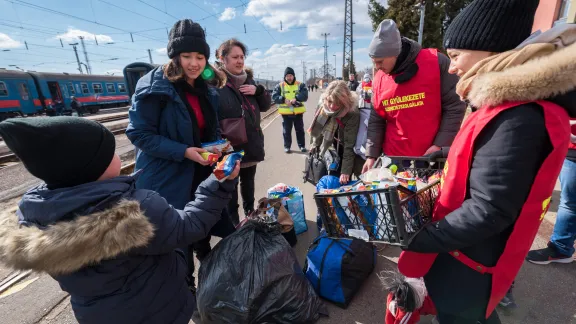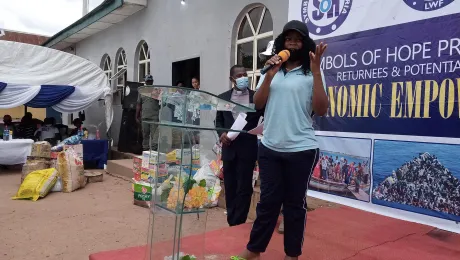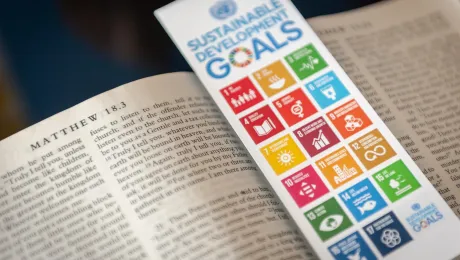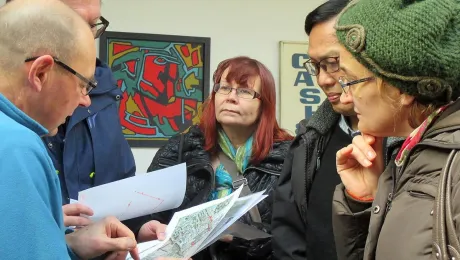Providing stability in times of emergency
Churches can provide stability in a world that changes rapidly. Local churches are present when shocks hit a certain context, and remain long after the immediate impact. They have certain advantages in responding to local disasters compared to international aid agencies: churches are familiar with the local context and can take action before national or international aid arrives. After a rapid response to the initial emergency, they are able to continue with the work toward sustainable development, because of their continuous presence.
Still, there is a need to further strengthen churches’ capacities on the ground. Sudden shocks and longer-term crises like COVID-19 have a disproportionate impact on the poor and marginalized in developing countries. Through their diaconal work churches serve those most vulnerable. As first responders, they too, are challenged by sudden emergencies.

Ukrainian refugee families receive support from aid workers as they arrive at the train station in Záhony, Hungary. Photo: LWF/Albin Hillert
Churches and Emergencies aims at empowering churches to be prepared for and effectively respond to emergencies in their contexts. Developed jointly in 2019 by the LWF Departments for Theology, Mission and Justice and World Service, the program brings together LWF’s expertise in different areas relevant to this work: church knowledge and theological understanding on the one hand, humanitarian and advocacy know-how on the other.
The joint work is being implemented in select target countries in Asia and Latin America since 2020. A key priority in Myanmar, Nepal and Colombia/Venezuela is to achieve impact at the local level in all the target countries. Member churches support local communities to establish effective emergency preparedness and response systems. They train community members on topics such as early warning and first aid, building proper infrastructure including evacuation centers and grain banks, and supporting local communities affected by flooding, earthquakes, violent conflict or other emergencies. At the national level, member churches are involved in civil society networks, interfaith collaboration and advocacy activities that hold governments accountable toward citizens. In countries where World Service is present, the respective LWF country or emergency program supports implementation on the ground.
At global level, the LWF assumes the role of networking, resource mobilization, facilitating joint learning and strengthening capacities of member churches involved in the initiative.
Part of the initiative is to support LWF’s member churches and the World Service country and emergency programs to deepen relationship and collaboration. World Service programs and member churches each have distinct assets and specific strengths, which, if pooled through collaboration, can be leveraged to effect more positive change for the marginalized and most vulnerable. The Guidance Note: Joint Engagement of World Service Programs and Member Churches, developed as part of the ‘Churches and Emergencies’ initiative, provides inspiration and practical recommendations for meaningful joint engagement, featuring four case studies from Angola, Colombia and Venezuela, Myanmar and Nepal.
Contacto
Get Involved
Share with us your stories, photographs and insights using the #LWF



